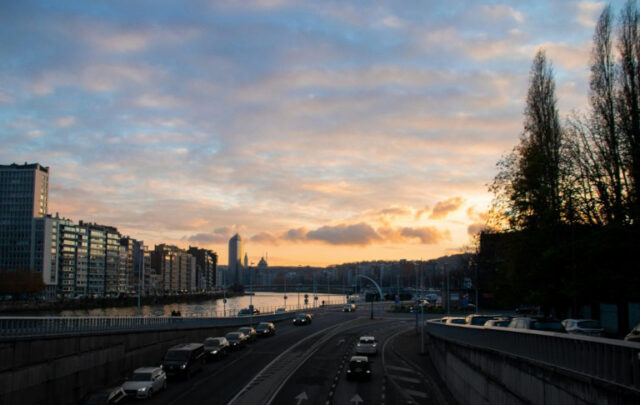It was in some ways the cafe at the Watershed in Bristol that gave birth to the Bristol Pound. That was where the four people, who became friends, met every few weeks in the very long gestation period for a very big idea.

The full story is in my new book Prosperity Parade. The initial idea for a Bristol Pound had actually came from Chris Sunderland, a social activist, a former priest and founder of the citizen engagement charity Agora, where he’d been busy campaigning for people to leave cars at home on Tuesdays.
Transition Bristol had organised an event after the financial crisis which asked the question: how can we make the Bristol economy more resilient? One of the organisers was Ciaran Mundy, a trained ecologist who had been selling mobile phones, while launching a charity called One World Wildlife (the Bristol pound was launched by people juggling multiple roles).
At the event, Chris suggested to Ciaran that Bristol should have its own currency – a Bristol Pound. Ciaran agreed and they contacted Josh Ryan-Collins from the New Economics Foundation, who had been involved in launching the Brixton Pound in London. He passed the query onto Mark Burton, who was studying new kinds of money and was looking for somewhere to help launch a regional currency.
The pieces began to come together. Mark, Chris and Ciaran finally met in the first of many meetings at the café in the Watershed in Bristol, on the waterfront. Neither Chris nor Ciaran had experience of local currencies and they were keen to find out: as a result, Mark spent the summer writing a series of papers on different currency models.
The fourth original member from the Watershed days was Stephen Clarke, a solicitor who’d had a similar idea. “We met every couple of weeks to talk about what we needed to do next and who we needed to talk to,” Mark told me.
Anyone who thinks launching new kinds of money is a simple business should read the story – there were exhilarating moments and also frustrating encounters with regulators, strange meetings at the Bank of England, unexpected allies like the Bristol Credit Union and the city council. There were ups with artists and food businesses and down with the inevitable frustrations of starting something new.
Does all this matter now that the Bristol Pound is up and running?
I think it does. Human stories and anecdotes are the stock in trade of politicians, the currency they use in their everyday lives as parliamentarians and public speakers. There is some evidence that they tend to take decisions based partly on the personal stories they hear.
So to make progress, any new idea or practical approach has to produce a cascade of stories that demonstrate their purpose and success. Perhaps more than most, the emerging movement of resilient economies is held back by the lack of stories circulating around central and local government or policy-making circles.
Prosperity Parade, funded by the Barrow Cadbury Trust, includes eight tales about the new entrepreneurial spirit, where people are finding ways of kickstarting their local economic engines, often in very poor areas, and by doing so increasing their independence from central and local government.
These are all about individuals or groups of individuals, wrestling with new ideas in practice – in food, money, banking, energy – and bringing them to life, and the story of the Bristol Pound is the first.
These stories also demonstrate that local economic regeneration is not about some kind of local protectionism, but about bringing entrepreneurial skills to bear to make things happen, to increase local activity, using the raw materials that are to hand: people, their ideas and their needs.
It is about enterprise, seen sometimes through a slightly different lens. It is about dreaming of what is possible and making it so. And the Bristol Pound is among those showing the way.
David Boyle is co-director of New Weather Institute. Prosperity Parade is available on Amazon and as a downloadable PDF.





